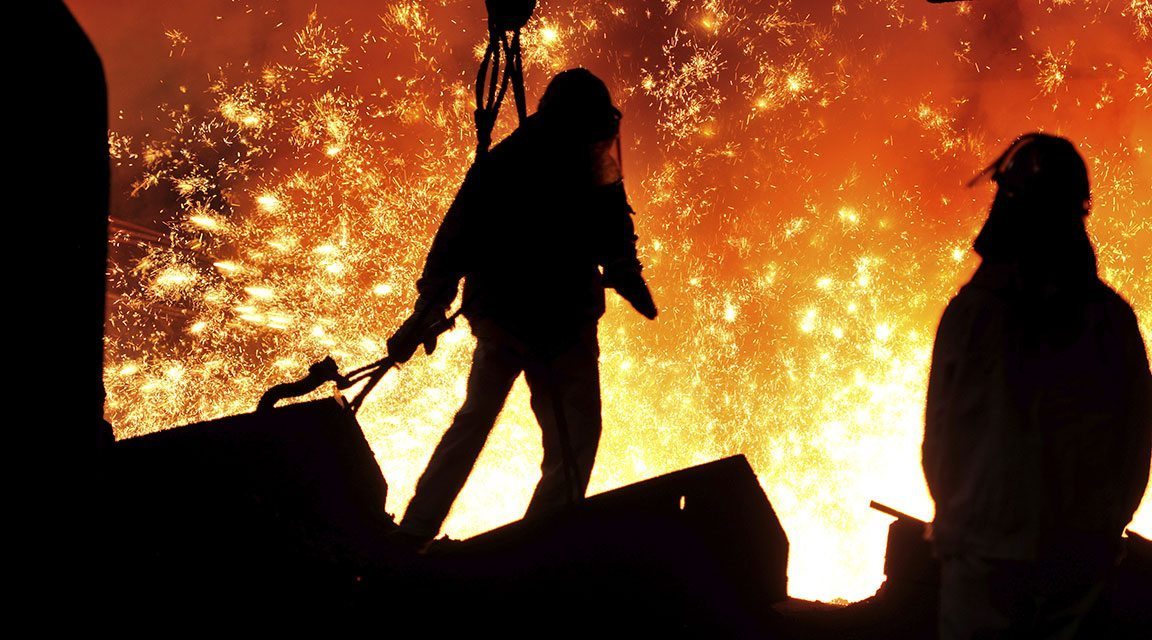

Improvement in oil and construction sectors boosts outlook for 2016 and 2017
Demand for steel in the Middle East has started to pick up following a downturn during 2014 and 2015, according to the head of the metals division of the regions largest steel producer Sabic.
Metals producers in the Middle East have been hit by a sharp drop in prices in recent years as lower-than-expected Chinese growth led to an oversupplied global market.
In its results for the fourth quarter of 2015, Sabic which is a major producer of petrochemicals cited the sharp fall in metal products prices as a reason for its 29 per cent year-on-year drop in profit.
However, Khaled al-Hajeri, director of Sabics metals special business unit (SBU), says that the sector has turned a corner and expects growing demand from end markets such as construction, and oil and gas.
When you talk about pipeline steel and steel for the oil and gas industry, it has definitely been [affected by the oil price]. Many projects in the oil and gas sector have already been stopped or delayed we noticed that in 2014 and 2015, Al-Hajeri told MEED in an interview at the Middle East Steel Conference in Dubai on 17 April.
But in the last part of 2015 things started to pick up again and we expect to be in better shape in 2017. The market and demand have started to improve, said Al-Hajeri, who was also the opening speaker at the conference.
Driving demand
The construction sector is the biggest consumer of steel in the Middle East, accounting for an estimated 90 per cent of steel use. Al-Hajeri is confident that activity in this sector will also improve.
Leading the demand in general for steel is construction in the region. There is a big improvement in the construction sector you can see it in the demand for structures, he said.
The Middle East steel sector has been through a difficult time with an increase in Chinese imports causing oversupply in the region and contributing to the fall in prices.
Some GCC steel producers, including UAE-based Emirates Steel, have called for increased government intervention to protect local businesses from alleged overseas dumping practices.
Al-Hajeri says that governments in the region need to tighten quality controls to ensure standards and prevent poor-quality products entering the region from overseas.
China is producing more than 50 per cent of world steel. When you have low demand even low demand in China they are going to export the [surplus] material, he said.
In China they produce some good material and some material that is not meeting the standards. There is an open market, but you have to have regulations to ensure good-quality material in the market you have to ensure that material entering the country is meeting the right standard, Al-Hajeri told MEED.
Al-Hajeri did not want to comment on Sabics plans for future investments. The company, along with many others in the Middle East, has slowed investment since the downturn in prices.
Plans to build major steel complexes in Jubail and Rabigh, on the kingdoms respective Gulf and Red Sea coasts, appear to have been put on hold for the time being.
Working together
Al-Hajeri said that upstream steel producers such as Sabic have the responsibility of improving downstream, steel-consuming sectors by working with them to develop products.
We have to improve the downstream industry from a technical point of view. They have their own specifications and, as a steel producer, I have to work with these companies to improve the application of steel, he said.
He will gain from us being next door and we will gain from opening a new market for him. We develop our mill to meet requirements of customers, he added.
Sabic is the largest-listed company in the GCC region and one of the worlds largest petrochemicals producers. It has five SBUs including chemicals, plastics, agri-nutrients, metals and specialities.
The company produces steel through its affiliate Saudi Iron & Steel Company (Hadeed), which operates a complex in Jubail and is the largest producer in the kingdom.
Sabic reported a 29.4 per cent drop in net profit in the fourth quarter of 2015 to SR3.08bn ($821.6m).
Some of the decline in profits in the last quarter of 2015 are attributed to a sharp fall in the price of metal products. However, our metals operations are running at full capacity and our customer base is loyal, said CEO Yousef al-Benyan in the results statement in January.
You might also like...

Rainmaking in the world economy
19 April 2024

Oman receives Madha industrial city tender prices
19 April 2024

Neom seeks to raise funds in $1.3bn sukuk sale
19 April 2024

Saudi firm advances Neutral Zone real estate plans
19 April 2024
A MEED Subscription...
Subscribe or upgrade your current MEED.com package to support your strategic planning with the MENA region’s best source of business information. Proceed to our online shop below to find out more about the features in each package.





